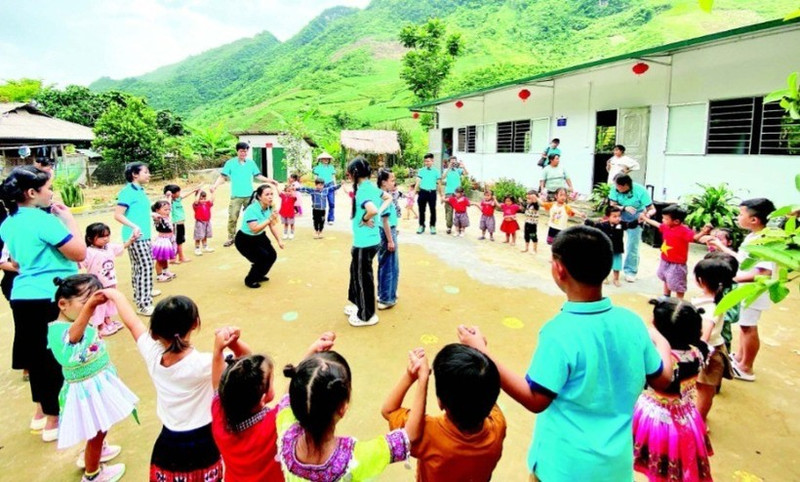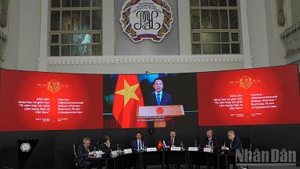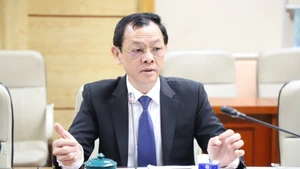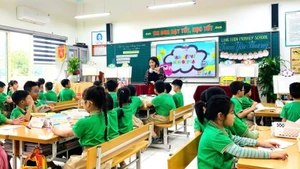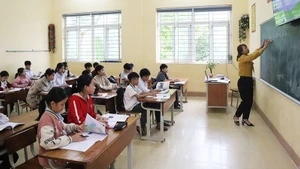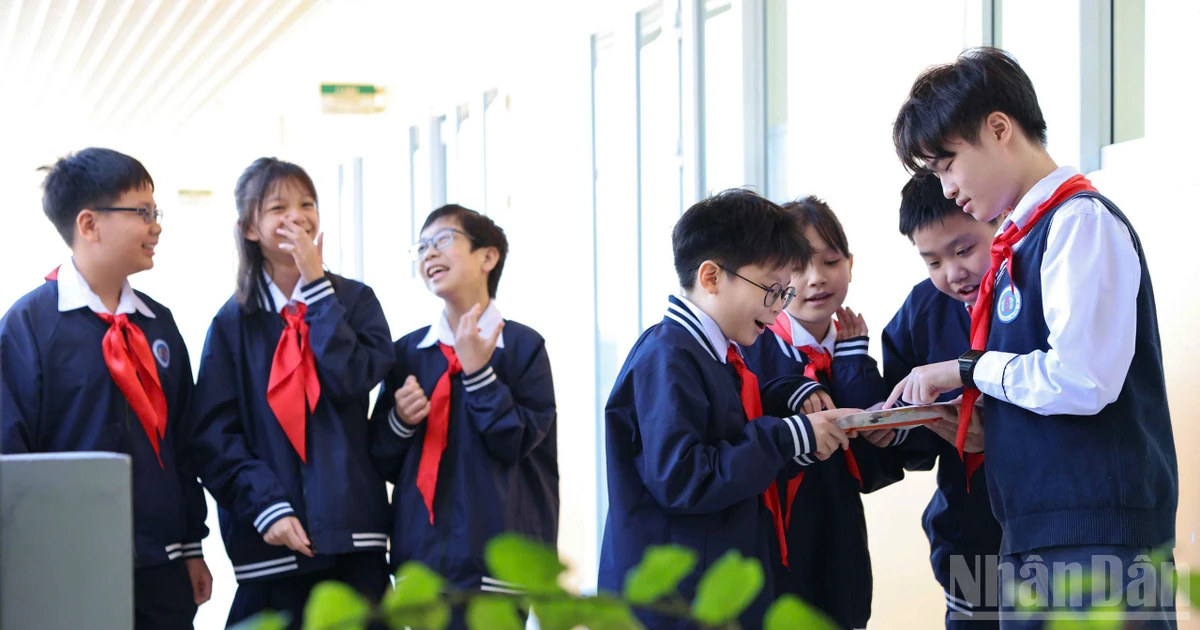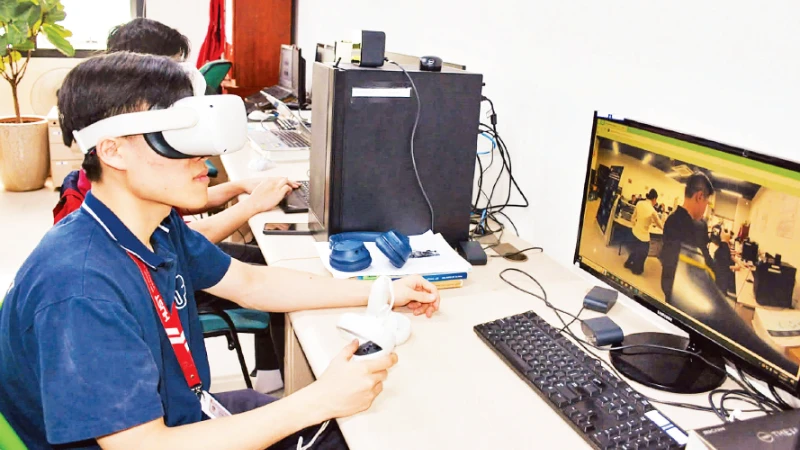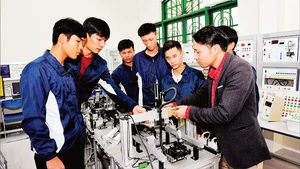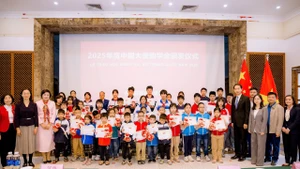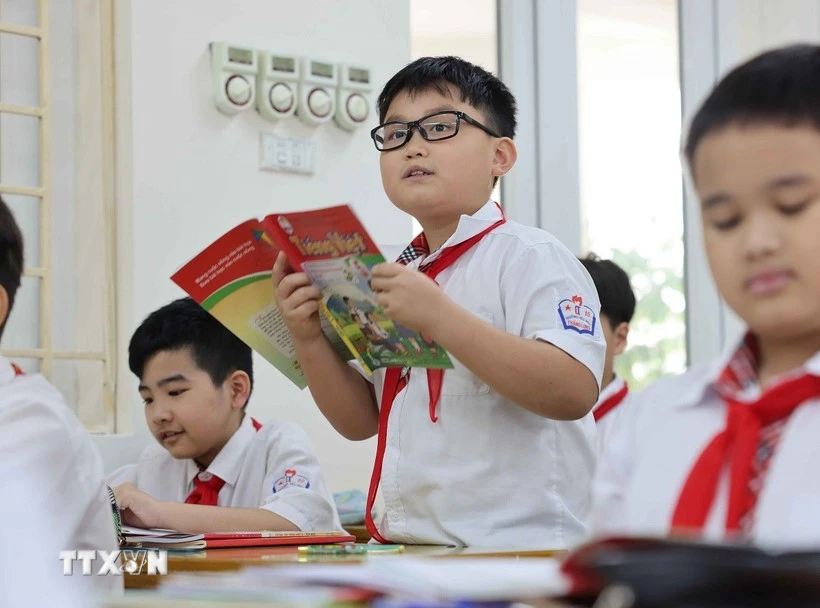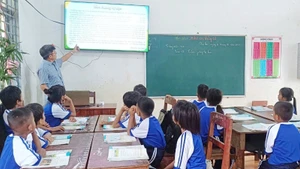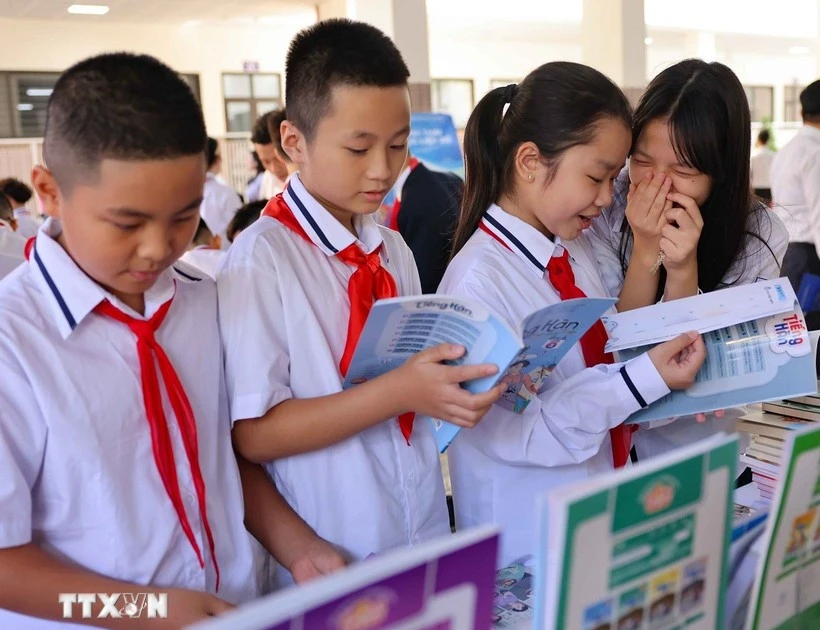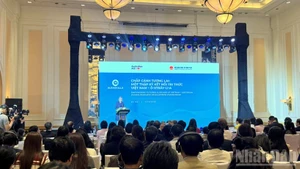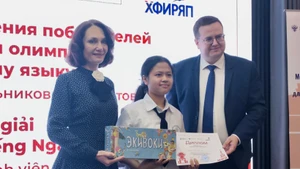Since 2022, six classrooms have been built under the “Warm Winter for Highland Children” project at three sites of Phin Ho Kindergarten, gradually putting an end to temporary and borrowed learning spaces. Thanks to these efforts, a school once riddled with challenges, serving 76 H’Mong children, has now reached a 100% enrolment rate for children aged 3 to 5, with attendance rates surpassing 90%, a goal that long seemed unattainable.
Joy of new classrooms
From early morning, Ha A Thanh and his wife Vu Thi Mai, living in Pa Phang 2 Hamlet, prepared to bring their two children, aged four and six, to the school for the new classroom inauguration ceremony. The children had never taken part in a celebration before, let alone performed in one, dressed in their colourful traditional clothes. For the first time, both their parents put aside their work in the fields to accompany their children and stayed until the end of the event.
“The teacher mentioned that the new classrooms were ready and that the children would rehearse performances after class. I made sure to bring my phone to record everything as a memory,” Mai shared.
The tiny schoolyard of Pa Phang 2 had never been so crowded with the presence of many parents who, until now, had been hesitant even to accompany their children to school. Beaming children with chubby cheeks clutched their vibrant gift bags, seated neatly in the two new 90-square-metre classrooms, capturing the attention of volunteers from the “Warm Winter for Highland Children” project, who had travelled from all over the country.
“Over the past 10 years, the project has supported the construction of dozens of classrooms in 19 school sites in mountainous provinces of Ha Giang, Yen Bai, Lang Son, Bac Kan, and Lai Chau. We have also presented teaching equipment, organised gift-giving events, and celebrated Mid-Autumn Festival and International Children’s Day. Our goal is to help children attend school safely and gain access to literacy as early as possible,” Dr Le Dai Duong, head of the project, explained.
The project’s first classroom construction in remote satellite campuses began in 2015. Back then, Dr Duong and his team struggled to raise the initial funds needed and had to continuously test construction technologies and materials suited to the harsh climate in the northern mountainous region. After years of experience, the team now completes classrooms at a stable cost within a short construction time, without compromising on quality.
In 2022 and 2023, four classrooms were built using prefabricated structures at Ta Tau and the central campus. This method proved effective in terms of speed, durability, and resistance to local weather. In 2025, the same technique was used to build two more classrooms at Pa Phang 2, fully equipped for educational purposes, delivered on time and to high standards.
“Our school has six satellite sites, all in extremely remote areas. In the past, both teachers and pupils had to study in makeshift or borrowed facilities. With the support of benefactors and improved policies for disadvantaged areas, the learning conditions are now steadily improving,” Ha Thi Thieu, Headteacher of Phin Ho Kindergarten shared.
Supporting children in highland go to school
The involvement of charitable organisations and kind-hearted individuals has breathed new life into the challenging journey of education in Phin Ho. New classrooms and festive celebrations like Mid-Autumn Festival and International Children’s Day now echo with laughter and excitement, motivating children to stay in school. The pupils eagerly look forward to joining their friends in class.
“On many trips to build classrooms, we saw children shivering from the cold but still determined to go to school. It reminded us how important it is to ease their path to school and support them in pursuing their studies to an end.” Bui Dinh Duong, a volunteer of the project, recalled.
From relief donation trips to fundraising for school construction, every effort is aimed at creating a better learning environment. However, the change goes beyond walls and furniture, it also lies in how local communities view the value of education. Even in the face of hardship, ethnic minority parents have begun to realise that the journey to school is not just a journey up a mountain, but a gateway to a better future for their children.
“Our people are still poor. Even when they work hard, income is limited as we mainly grow maize and cassava. However, the fact that more families are proactively sending their children to school shows a significant shift in awareness despite the many difficulties in life,” Ha A Vinh, Head of Pa Phang 2 Hamlet, noted.
In the 2024–2025 school year, Phin Ho Kindergarten mobilised the pupils’ parents to contribute 450 days of volunteer labour to build playgrounds and improve the school environment for their children to play and experience. They also donated rice and other essentials to support meals at the central campus. These contributions are a strong source of encouragement for the teachers’ continued efforts.
Vu Thi Trang, a teacher from Nam Dinh, has worked with the Lai Chau education sector for 20 years. After graduation, she and her husband, also a teacher, moved to the area and chose to stay.
“It started as a twist of fate and continued in very tough conditions. After years of hard work, we now see impressive school attendance rates in remote areas like Phin Ho. It’s a result we’re truly proud of and one that wasnot easily achieved,” she said.
Despite difficult conditions, the teachers here have long been preparing children for primary school through field trips and extracurricular activities. They have also actively participated in online digital training courses to enhance their professional and managemen skills.
“Our school website is managed by just one teacher, but we still make every effort to update our professional and teaching activities online. It’s a way to modernise communication and connect with benefactors and various support channels to overcome infrastructure challenges and improve teaching and learning conditions,” Headteacher Thieu shared.
“Education is the shortest path to success. In the coming time, our project is to build a long-term scholarship fund for outstanding but underprivileged high school students, to help them continue pursuing their education and build a sustainable future. These young people will one day be an important human resource to develop the country,” Dr Le Dai Duong stressed.
